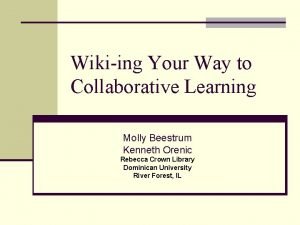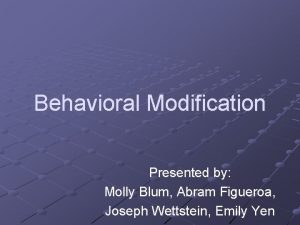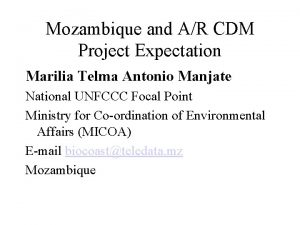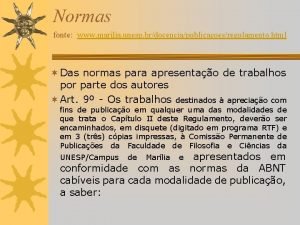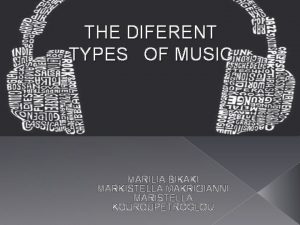Marilia Garcia Molly Kenney Connecticut plan The Connecticut

















- Slides: 17

Marilia Garcia & Molly Kenney

Connecticut plan • The Connecticut Compromise (also known as the Great Compromiseof 1787 or Sherman's Compromise) was an agreement that large and small states reached during the Constitutional Convention of 1787 that in part defined the legislative structure and representation that each state would have under the United States. . .

3/5 compromise • When the United States' Constitution was being written, one of the issues being debated was how representatives should be allocated to each state. Though the delegates agreed that one house of Congress, the House of Representatives, would be based on population, how population was totaled for determining the representation within that house was strongly debated. At the time, slavery was still legal in the country. The dilemma the delegates faced was how to count slaves for the purposes of representation.



Amendments • Thirty-three amendments to the United States Constitution have been proposed by the United States Congress and sent to the states for ratification since the Constitution was put into operation on March 4, 1789. Twenty-seven of these, having been ratified by the requisite number of states, are part of the Constitution.

Federalism • Federalism is a system of government in which entities such as states or provinces share power with a national government. The United States government functions according to the principles of federalism.

Anti- federalist vs Federalist • There were many differences between federalists and antifederalists and those differences affected many of the Articles in the constitution. The federalists were mostly well educated and propertied class. Most lived in settled areas along the seaboard, while the anti-federalists were often the ill-educated and illiterate, and the poorer class in society. Those differences led each group to support different positions and ideas on various issues. Some of the issues that they had different ideas about were the Great Compromise, 3/5 ths Compromise, Trade Compromise, Presidency Compromise, and Ratification. Those arguments were the main parts of the Constitution, and influenced greatly by the Federalists and Anti-Federalists.

Articles of Confederation • After considerable debate and alteration, the. Articles of Confederation were adopted by the Continental Congress on November 15, 1777. This document served as the United States' first constitution, and was in force from March 1, 1781, until 1789 when the present day Constitution went into effect .

Federalist Papers • The Federalist is a collection of 85 articles and essays written by Alexander Hamilton, James Madison, and John Jay promoting the ratification of the United States Constitution

Excessive democracy • The idea is that while democratic procedures and widespread participation in decision making is a good thing it is not necessarily quick or efficient. An excess of democracy is a situation where so much effort and time goes into the process of decision making that it frustrates the need for a decision to be made. Similarly it can refer to a situation where a country has so many political parties that while, yes, just about everyone can find a party that represents exactly what they think, it is difficult to form a government as no one party is big enough. •

Expressed vs Reserved powers • Expressed • Those powers directly written in the Constitution. • ��� • Reserved • Powers left for the states.

Enlightment • a European intellectual movement of the late 17 th and 18 th centuries emphasizing reason and individualism rather than tradition. It was heavily influenced by 17 th-century philosophers such as Descartes, Locke, and Newton, and its prominent exponents include Kant, Goethe, Voltaire, Rousseau, and Adam Smith. • The French Revolution of 1789 was the culmination of the High Enlightenment vision of throwing out the old authorities to remake society along rational lines, but it devolved into bloody terror that showed the limits of its own ideas and led, a decade later, to the rise of Napoleon. Still, its goal of egalitarianism attracted the admiration of the early feminist Mary Wollstonecraft and inspired both the Haitian war of independence and the radical racial inclusivism of Paraguay’s first postindependence government. • Enlightened rationality gave way to the wildness of Romanticism, but 19 th-century Liberalism and Classicism—not to mention 20 th-century Modernism—all owe a heavy debt to the thinkers of the Enlightenment.

Implied powers • implied powers—that is, powers not explicitly named in the Constitution but assumed to exist due to their being necessary to implement the expressed powers that are named in Article I

Commerce Clause The Commerce Clause describes an enumerated power listed in the United States Constitution (Article I, Section 8, Clause 3). Theclause states that the United States Congress shall have power "To regulate Commerce with foreign Nations, and among the several States, and with the Indian Tribes.

Supremacy Clause • A clause in Article VI of the U. S. Constitution that declares federal laws to have jurisdictional authority over state laws in the event there is conflict between laws established by two governing bodies.

 Molly kenney
Molly kenney Aurea mediocritas poema
Aurea mediocritas poema Jim kenney harvard pilgrim
Jim kenney harvard pilgrim What happened to kylie kenney
What happened to kylie kenney Rick kenney md
Rick kenney md Kenney reeves
Kenney reeves Wikiing
Wikiing Fur coat characters
Fur coat characters Oj simpson bloody socks
Oj simpson bloody socks Mollys monolog
Mollys monolog Molly austin age
Molly austin age Molly malone psychologist
Molly malone psychologist Molly ong
Molly ong Molly gabel
Molly gabel Molly blum
Molly blum Edward bellamy apush definition
Edward bellamy apush definition What happened to mollie
What happened to mollie Molly caroland
Molly caroland






